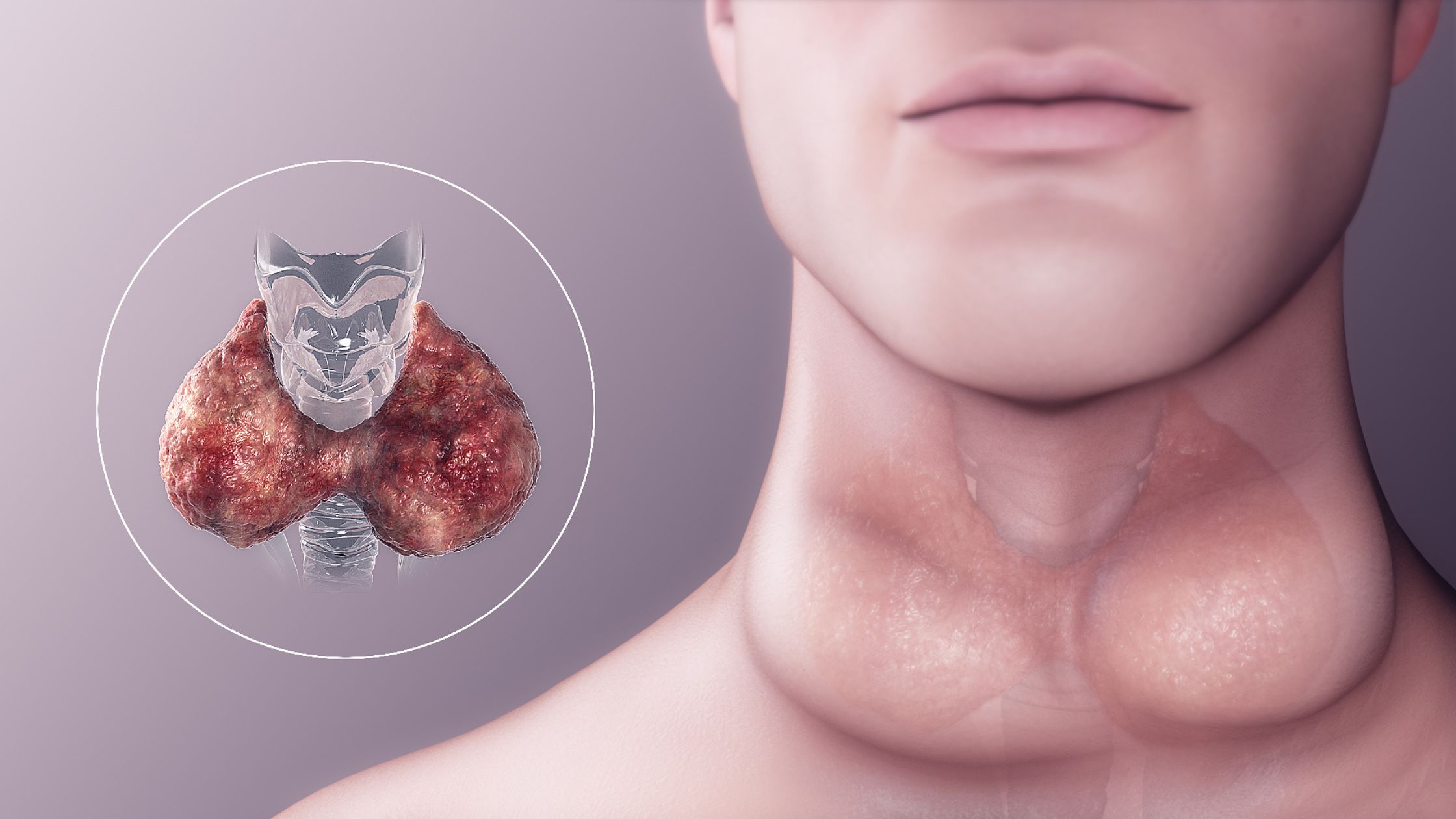15 Signs of Thyroid Problems
The thyroid gland, also called the thyroid, a small butterfly-shaped organ in your neck, plays a huge role in regulating your metabolism, energy levels, growth, and overall health. When your thyroid isn’t working properly, it can cause a variety of symptoms that might be easy to overlook. Here are 15 signs that could indicate thyroid problems.

1. Unexplained Weight Changes Can Signal Thyroid Issues
One of the most noticeable signs of a thyroid problem is unexplained weight changes. If you have hypothyroidism (an underactive thyroid), you might gain weight without changing your eating habits. On the other hand, hyperthyroidism (an overactive thyroid) can lead to unexpected weight loss, even if you’re eating more than usual.
2. Persistent Fatigue or Feeling Sluggish Might Indicate Hypothyroidism
If you feel exhausted all the time, even after getting adequate rest, this could be a sign of an underactive thyroid. Hypothyroidism slows down your body’s processes, making you feel tired and sluggish. This type of fatigue often doesn’t improve with rest, and you might find it hard to stay awake during the day.
3. Changes in Your Heart Rate Can Be Linked to Thyroid Problems
Your thyroid hormones play a role in regulating your heart rate. If you have hyperthyroidism, you might notice your heart racing or pounding, even when you’re at rest. Conversely, hypothyroidism can cause your heart rate to slow down.
4. If You Experience Frequent Mood Swings, It Could Be Due to Thyroid Issues
Thyroid problems can affect your mood and emotions. An underactive thyroid may cause feelings of depression, sadness, or irritability. In contrast, hyperthyroidism can make you feel anxious, restless, or irritable. This happens because thyroid hormones affect your brain chemistry, which impacts your mood.
5. Dry Skin or Hair Could Be a Symptom of Hypothyroidism
If your skin is suddenly dry, rough, or flaky, or your hair has become coarse, brittle, or thinning, it might be a sign of hypothyroidism. When your thyroid isn’t producing enough hormones, your skin and hair cells don’t get the energy they need to function properly, leading to dryness and hair loss.
6. Experiencing Cold Intolerance May Suggest Hypothyroidism
If you feel cold all the time, even when others around you are comfortable, it could be due to hypothyroidism. An underactive thyroid slows down your metabolism, which reduces your body’s ability to generate heat, making you feel colder than usual.
7. If You Feel Hot All the Time, Hyperthyroidism Could Be the Culprit
On the flip side, hyperthyroidism can make you feel unusually warm or sweaty, even in cool environments. This happens because your overactive thyroid speeds up your metabolism, causing your body to produce more heat.
8. Muscle Weakness or Joint Pain May Be Related to Thyroid Issues
Thyroid problems can cause muscle weakness, aches, or stiffness, particularly in the shoulders, hips, or legs. If you find it hard to climb stairs, lift objects, or feel pain in your joints, it might be due to hypothyroidism or hyperthyroidism.
9. Menstrual Changes Could Be a Sign of Thyroid Dysfunction
Women with thyroid problems often experience changes in their menstrual cycles. Hypothyroidism can cause heavy or prolonged periods, while hyperthyroidism might lead to lighter or shorter periods or cause your menstrual cycle to become irregular. In some cases, thyroid problems can even cause periods to stop altogether.
10. If You Have Difficulty Sleeping, Your Thyroid Might Be to Blame
Sleep disturbances are another common sign of thyroid issues. Hyperthyroidism can make it hard to fall asleep or stay asleep due to feelings of anxiety or a racing heart. On the other hand, hypothyroidism might make you feel sleepy or drowsy all the time, even during the day.
11. Swelling in the Neck Could Indicate a Thyroid Problem
A noticeable swelling or lump in your neck could be a sign of a thyroid disorder, such as a goiter (enlarged thyroid gland). Goiters can occur with both hyperthyroidism and hypothyroidism, so if you see or feel swelling in this area, you should see a doctor.
12. Changes in Bowel Habits Might Be Related to Thyroid Issues
If you notice changes in your bowel habits, your thyroid could be to blame. Hypothyroidism often causes constipation, as the slower metabolism affects your digestive system. In contrast, hyperthyroidism can cause frequent bowel movements or diarrhea.
13. If You Feel Restless or Hyperactive, It Could Be Hyperthyroidism
Hyperthyroidism often causes people to feel restless, jittery, or anxious. This happens because an overactive thyroid floods your body with hormones, speeding up all your body’s processes. You might feel like you can’t sit still, or you’re constantly on edge.
14. Experiencing Hoarseness or Voice Changes Might Point to Thyroid Problems
The thyroid gland is located near your voice box (larynx), so thyroid problems can sometimes cause hoarseness or changes in your voice. If you notice that your voice sounds deeper or you’re frequently losing your voice, it could be a sign that your thyroid is swollen or enlarged.
15. Difficulty Concentrating or Memory Problems Could Be Linked to Hypothyroidism
If you’re having trouble focusing or remembering things, your thyroid could be the cause. Hypothyroidism, in particular, can lead to problems with concentration, memory, or “brain fog.” This happens because low thyroid hormone levels can affect the way your brain functions.
What Causes Thyroid Problems?
Several factors can contribute to thyroid problems, including:
- Autoimmune diseases: Conditions like Hashimoto’s thyroiditis (causing hypothyroidism) and Graves’ disease (causing hyperthyroidism) are the most common causes of thyroid dysfunction.
- Iodine deficiency: Your thyroid requires iodine to create hormones, so a lack of iodine in your diet can lead to thyroid problems.
- Genetics: If thyroid problems run in your family, you might be more likely to develop them.
- Medications: Certain medications, such as lithium, may interfere with thyroid function.
- Radiation therapy: Exposure to radiation, especially in the neck area, can damage your thyroid and lead to problems.
How Are Thyroid Problems Diagnosed?
If you suspect you have a thyroid problem, see your doctor. They may perform a blood test to measure your thyroid hormone levels (TSH, T3, and T4). If your levels are too high or too low, your doctor can diagnose a thyroid disorder. They might also use imaging tests (like an ultrasound) to check for thyroid nodules or goiter.
Treatment Options for Thyroid Problems
Treatment depends on whether your thyroid is overactive or underactive:
- Hypothyroidism: Usually treated with a daily thyroid hormone replacement medication, such as levothyroxine, to normalize hormone levels.
- Hyperthyroidism: Treatment may include antithyroid medications, radioactive iodine therapy, or sometimes surgery to remove part of the thyroid gland.
Conclusion
Thyroid problems can affect many aspects of your health, from your weight and energy levels to your mood and memory. If you notice any of these signs, don’t ignore them. It’s essential to talk with your doctor and get your thyroid checked, as early detection and treatment can help you manage the condition and prevent complications.






